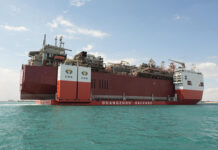
A number of European shipping and environmental groups have written an open letter to European Commission (EC) urging the regulators to back environmentally sustainable hydrogen and ammonia as part of its FuelEU Maritime carbon neutral energy initiative for maritime.
[s2If is_user_logged_in()]The signatories told the EC that maritime transport will play an important role in the EU reaching its 2050 goal for carbon-neutrality. The letter, written by Trafigura, CMB, Lloyd’s Register, DFDS, Hydrogen Europe, Torvald Klaveness, Transport & Environment and Viking, urges the authorities to focus on fuels that can achieve the EU ambitions rapidly with existing technology.
“In order to deliver a sustainable, scalable and cost-effective green transition for maritime transport, the signatories call on the European Commission to stimulate within the framework of the FuelEU Maritime initiative the deployment of green hydrogen and ammonia for shipping,” said the letter.
Among the many candidates for future fuels the EC should look for alternatives that are both “sustainable and scalable” with green hydrogen and ammonia and can deliver the necessary quantities.
“These fuels are currently very expensive compared to fossil fuels, but production costs can be reduced with economies of scale. To justify large investments in electrolysers and ammonia plants, European maritime fuel policy needs to send a clear demand signal for the potential investors by focusing on these green fuels and their relevant propulsion technologies,” said the group.
Acknowledging the high cost of the transition, €1.4 trillion (US$1.685 trillion), to develop the necessary infrastructure the writers believe that this is an opportunity to develop new jobs and an industry that will help the European economy to recover from the Covid-19 slump.
It was a theme that had been picked up by Ingrid Irigoyen, the associate director ocean and climate at the Aspen Institute, at the TPM Conference on 2 March. Irigoyen told listeners that regulators and industry must “send demand signals” for green hydrogen fuels that would stimulate production and add pressure from the manufacturers to the consumers.
MSC executive vice president of maritime policy and government affairs, Bud Darr also on the panel with Irigoyen, noted, “Biofuels need economic incentives, but scale and sustainability of the feedstocks are also important factors. Regulation of the fuel providers would be much more productive than simply continuing to require something of shipowners that they cannot control.”
Darr added that there are significant public voices that do not support biofuels, but for MSC this means taking a “technology neutral approach” as a better decarbonisation solution.
This discussion cut directly into the fuel debate that has split the maritime community, for want of a better description, the Maersk or the CMA CGM solution. Maersk has opted to shift from fossil fuels directly to carbon neutral energy, whereas the French carrier has opted for LNG as a bridging fuel, as advocated by DNV among others.
For Darr the transition and investment made into LNG now is “not a distraction,” he argues through LNG the industry can work on the gains now, while looking for longer term solutions.
“In addition to localised pollutant benefits that are substantial from LNG, there is plenty of evidence to support that it does make modest well to wake improvements in the GHG profile today. Methane slip is also being reduced continually to even lower levels now that its importance is better understood. The move from fossil-based LNG to bio-LNG or e-LNG will be very important in the longer term for these ships to avoid becoming stranded assets as other options become available at scale,” commented Darr.
While on the Maersk side of the debate Irigoyen argues that there are “credible concerns about whether it [LNG] can be part of a long-term solution.” She went on to say that there is an “absence of regulations that raises the floor for all the industry.”
Nick Savvides
Managing Editor
[/s2If]
[s2If !is_user_logged_in()]Please login or register to read the rest of the story[/s2If]





